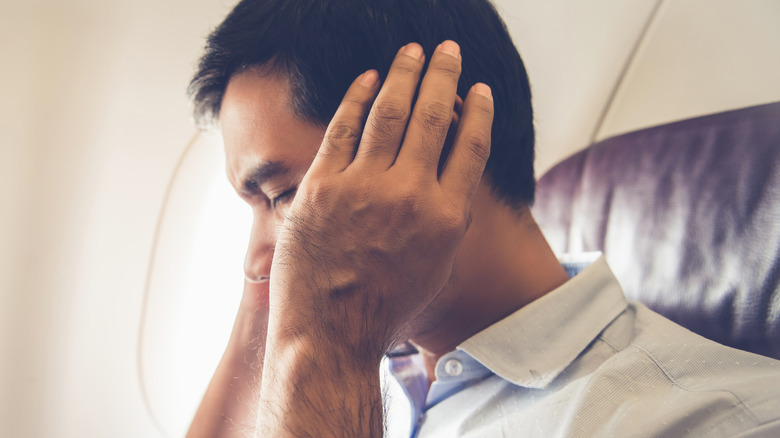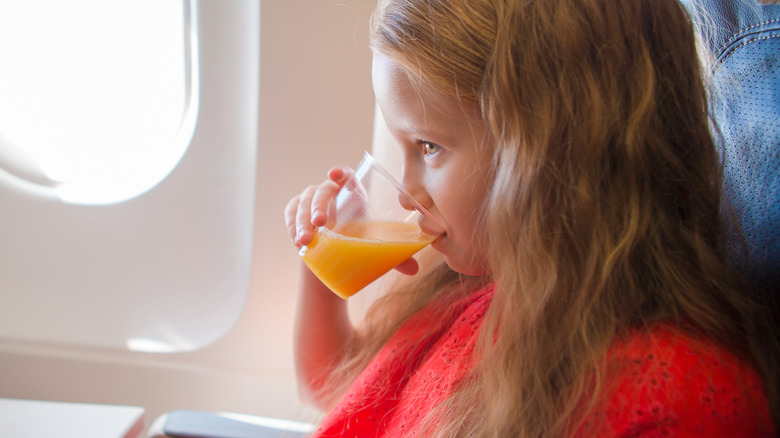How To Pop Your Ears And Relieve Pressure
Let's face it: flying isn't exactly the most comfortable form of travel. Between cramped seating, turbulence, and the bathroom almost always being occupied, airplane travel can be quite the headache, but that's not the only kind of ache that flying can cause. For some, ascending into the sky can cause symptoms similar to those of an earache, otherwise known as airplane ear (via Mayo Clinic).
Airplane ear occurs when we experience an imbalance of air pressure between our surrounding environment and our middle ear, per the Mayo Clinic. The eustachian tube isn't always able to respond in time to regulate the sudden change in air pressure, which can lead to discomfort in the ear, mild hearing loss, or a feeling of fullness in the ear. Medically referred to as ear barotrauma, the condition can also result from air pressure changes associated with scuba diving or changes in elevation, such as when driving up into the mountains.
In order to relieve the pressure, there are different methods one can implement to try and "pop" their ears, all of which involve restoring the balance of air pressure (via Mayo Clinic). Most commonly, you've probably heard of what's known as the Valsalva maneuver — holding your nostrils and mouth closed while gently exhaling. According to WebMD, doing so creates space for the build-up of pressure to escape out of the eustachian tube. However, there are other less conventional methods for popping one's ears that you may not have heard of.
Ear popping methods for adults and children
Along with yawning, swallowing, and flexing one's jaw muscles, frequent flyers can also try blowing up a balloon, suggests WebMD. It might look a little strange to the person seated next to you, but the pressure you force out in order to inflate the balloon can relieve the build-up of pressure in your ears. Some balloon products are even uniquely designed for ear-popping purposes. In addition, the Mayo Clinic notes that those who are susceptible to pressure build-up in the ears are better off staying awake during takeoff and landing rather than falling asleep. Otherwise, you won't be able to implement the aforementioned techniques and may wake up in discomfort.
Ear barotrauma can be especially uncomfortable for children. For that reason, KidsHealth suggests having gum or hard candy available for a child to suck or chew on to help relieve pressure in the ears. Alternatively, a pacifier, bottle, or breastfeeding can also have the same effect by helping the child to swallow or work their jaw muscles. Similarly, sipping on a drink or using a straw to blow bubbles into the beverage may also help.
When it comes to utilizing decongestants or antihistamines, be sure to talk with your doctor before traveling, especially if you're experiencing cold symptoms prior to departure. WebMD cautions that certain ear-popping techniques can put one at risk for further infection.


